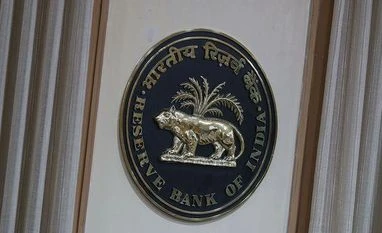With the price index surprising on the upside in August, many analysts have pencilled in a higher inflation print in September as well and accordingly expect the central bank to frontload policy rate hikes, delivering another 35 bps later this month.
Confounding the worries on the inflation front, retail inflation accelerated to 7 per cent on-year in August from 6.7 per cent in the previous month -- staying above the upper tolerance limit of the central bank for all the eight months of 2022.
The higher than expected August inflation print was driven by food prices primarily in rural areas which came in at 7.2 per cent as against 6.7 per cent in urban areas.
The rate-setting panel has increased the policy repo rate by 140 bps to 5.4 per cent since May with the last being a 50 bps increase in the August review. Yet real interest rates continue to be negative as inflation continues to stay above 6 per cent.
According to Tanvee Gupta-Jain, the India chief economist at the Swiss brokerage UBS Securities, considering the base effect, inflation print for September is also likely to remain elevated around the August levels before moderating meaningfully from October onwards. This will have the RBI-led monetary policy committee front-loading the tightening cycle and deliver another 35 bps in the September 30 policy review.
For the full year FY23, the brokerage continues to expect retail inflation to average at 6.7 per cent. Accordingly, she says in their base case, they continue to expect the monetary policy committee to front-load the rate hike cycle and raise the repo rate by another 35 bps in the September review.
Also Read
In a note, Rahul Bajoria, the chief economist at Barclays Securities India, said elevated inflation on both the retail and wholesale fronts suggests the need for the RBI's monetary policy committee to maintain vigilance over evolving price trends and accordingly he expects the MPC to front-load rate hikes, and deliver another 50 bps rate hike on September 30.
On the positive side he notes that the gap between WPI and CPI is closing, it remains wide enough to keep the MPC on its path of front-loaded rate hikes.
In a note, Morgan Stanley said they expect a 35-bps rate hike in the September 30 review as they expect CPI inflation to remain around 5.3 per cent in FY24 and thus believe that normalisation in real rates is warranted.
Even as the monsoon has been progressing well with cumulative rainfall 6 per cent above the long-term average up to September 12, the distribution of the rainfall has been rather uneven. As a result the summer crop sowing declined by 1.3 per cent on-year up to September 2, largely led by paddy which declined by a negative 5.6 per cent and pulses (-4.4 per cent), UBS said.
To control the domestic prices, the government last week banned exports of broken rice and imposed a 20 per cent duty on exports of various grades of rice.
According to her, another worry is that core inflation continues to remain sticky at 5.8 per cent (CPI ex food and fuel) in August, while fuel inflation decelerated to 5.2 per cent from 5.6 per cent in July.
Stating that sticky inflation and weakening growth has increased the policy dilemma and given that the policy rates are still below neutral, Japanese brokerage Nomura said that they too expect a 35-bps hike in September and another 25 bps in December for a 6 per cent terminal rate.
At the margin, the August CPI data suggest that the September MPC decision may lie between a 35 bps and a 50 bps hike, rather than a 25 bps hike, it added and also expects prices to trend down from October, after peaking in September.
In a report, State Bank chief economist Soumya Kanti Ghosh said inflation is expected to fall in a 'jiffy' in the second half of the financial year.
He expects the September rate hike to be a close call of 35-50 bps and beyond September, he is pencilling in a minimal and token rate increase as inflation is likely to fall from H2FY23.
Ghosh estimates that the 140-bps hike in the repo rate so far has increased interest cost of retail and MSME customers by around Rs 42,000 crore and he expects the RBI to consider this while deciding on future rate increases.
(Only the headline and picture of this report may have been reworked by the Business Standard staff; the rest of the content is auto-generated from a syndicated feed.)
)